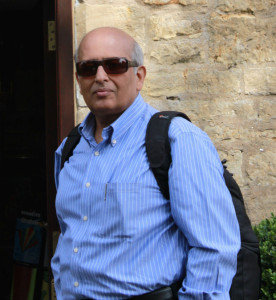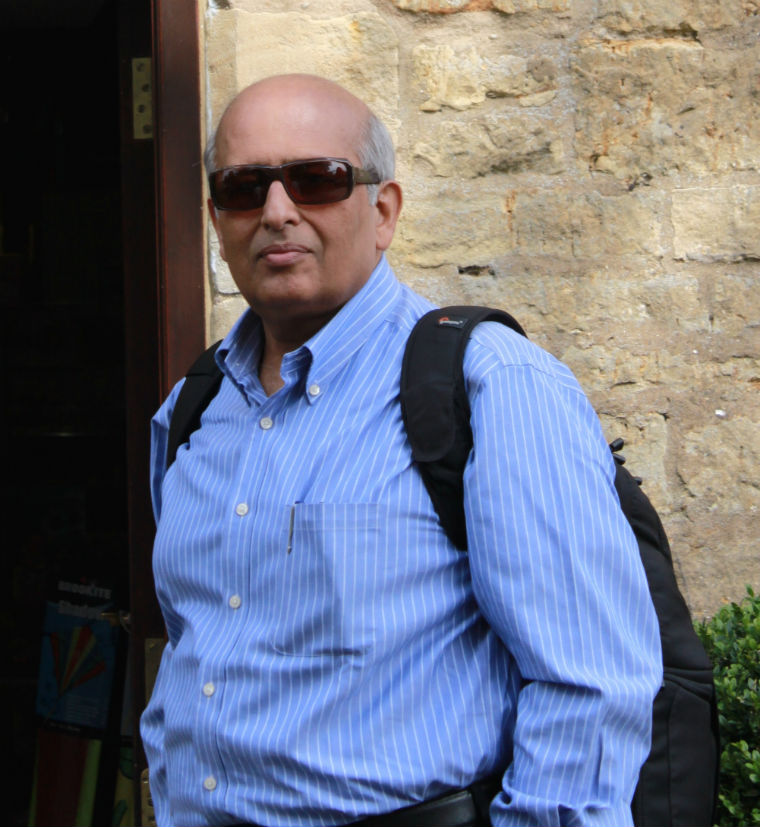By Sahana Ghosh
Hyderabad– India lacks a culture of “good mentorship” and those in a position to train and mentor are not dedicating adequate time to help budding researchers shape their careers, says veteran scientist Shahid Jameel, the Chief Executive Officer (CEO), Wellcome Trust/DBT India Alliance.
Laying strong emphasis on acquisition of certain skill sets (including adaptation and trouble-shooting) during the intense years leading up to one’s doctorate (PhD), Jameel said getting a PhD is not just about writing a thesis and publishing papers.

“We just don’t really have a culture of good mentorship in the country. People are not taking out the time that is required to give young researchers the skills to develop their careers,” Jameel told IANS in an interview here on the sidelines of the 13th SciComm workshop organised by the alliance.
“Most people are content with people coming into their labs doing the experiments, producing results… sometimes not even analysing the results themselves, just writing a paper, obtaining a PhD and getting out,” lamented Jameel.
Formerly associated with the International Centre for Genetic Engineering and Biotechnology, New Delhi, Jameel with more than 25 years of experience in bio-medical research and laboratory management, took over the reins of the 10-year-old partnership between Wellcome Trust and the Department of Biotechnology in 2013.
“There is so much more to the PhD than simply publishing papers and writing a thesis,” he averred.
Jameel, who acts as a mentor in the SciComm workshops to young researchers and clinicians, doles out practical suggestions on writing for grants (funding), preparing CVs and choosing a PhD supervisor: a tricky one because one does not really know much about them before they actually start working.
Some of the skill sets that one needs to assimilate during their doctorates, he highlighted, are: “Whether the person has developed skills to formulate a question and to know what are the tools, what are the experiments required to solve that question, identify limitations to that approach, think about alternate strategies and be able to properly analyse data.”
“Unfortunately, most people in our institutions go through a PhD without acquiring many of these skills.”
Apart from modules on research ethics, manuscript writing, grants writing, oral presentation skills, mentoring and aLearning from Career Choices’, the SciComm workshop, a “one-of-its-kind of soft skills training programme in the country” provides the opportunity for the participants to discuss their research proposals and receive expert comments from the workshop mentors, including Jameel.
The partnership is currently exploring new trends such as a science-arts space and Young Investigator meets (akin to a job fair in biological sciences) and is in its seventh year now.
Jameel informed the partners have now initiated a process for a possible extension of the alliance.
“It depends upon the two partners agreeing to extend it and for the two partners to agree they need some data on paper to show whether how successful the first 10 years have been so we are starting a process where the alliance is going to be externally reviewed,” he said.
This would happen towards the end of the year or early next year.
“The two partners are in the process of putting together an external committee that will carry out the review. On the alliance part, we are putting together a package that will tell the committee as to what the goals were and how far we have met these goals,” he said.
“If the review is successful then the two partners will take a call to whether they would like to fund and I am very hopeful in carrying forward this relationship,” Jameel added. (IANS)














